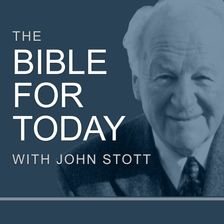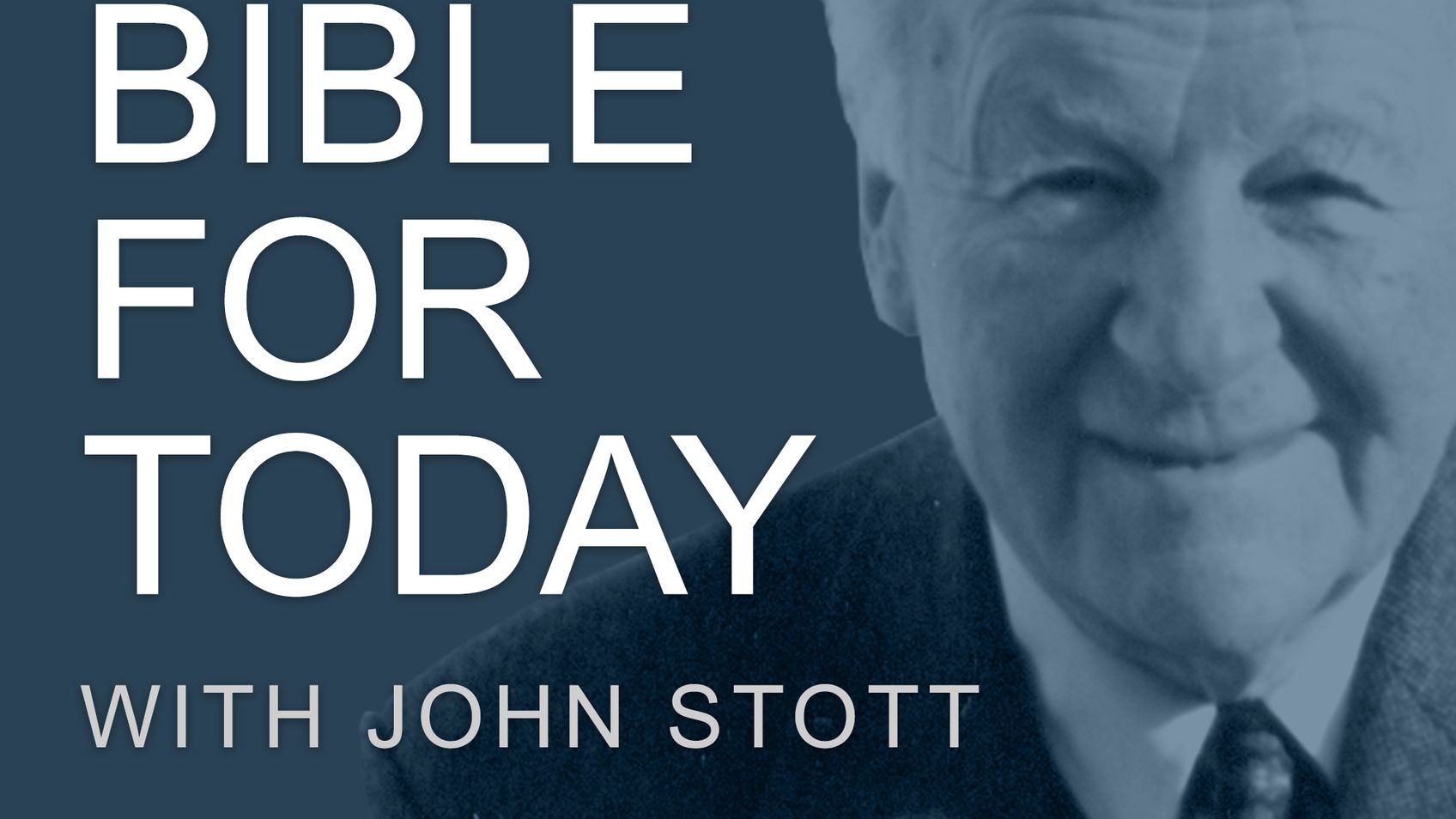Introduction to Genesis - Part 1
January 27, 2021

The Bible for Today with John Stottwebteam
John Stott explains why we must have the firm foundation of Genesis in place if we are ever to build our understanding of Scripture.
More From The Bible for Today with John Stott

Introduction to Genesis - Part 2
The Bible for Today with John Stott
January 28, 2021
John Stott shows how Genesis is 'God Breathed' and must be regarded primarily as a book of salvation and not of science.

A Charge to Church Elders - Part 1
The Bible for Today with John Stott
January 28, 2021
Whilst the leadership within each church may vary, John Stott uncovers the blueprint for church leadership that is laid out in Scripture.

A Charge to Church Elders - Part 2
The Bible for Today with John Stott
January 28, 2021
John Stott uses the example of the apostle Paul to show how church leadership should be done according to Scripture.
More on OpenTheo

Does Open-Mindedness Require Studying Other Religions Before Becoming a Christian?
#STRask
February 9, 2026
Questions about the claim that if Christians really want to be open-minded, they need to read and study other religions before committing to Christian

Is Greg Placing His Faith in the Wrong Thing?
#STRask
February 12, 2026
Questions about Greg placing his faith in his personal assessment of which truth claims best match reality rather than in the revelation of God in Jes

Does God Hear the Prayers of Non-Believers?
#STRask
February 26, 2026
Questions about whether or not God hears and answers the prayers of non-believers, and thoughts about a church sign that reads (as if from God), “Just

Are You Accursed If You Tithe?
#STRask
December 15, 2025
Questions about whether anyone who tithes is not a Christian and is accursed since Paul says that if you obey one part of the Mosaic Law you’re obliga

Can You Recommend Good Books with More In-Depth Information and Ideas?
#STRask
January 22, 2026
Questions about good books on Christian apologetics, philosophy, and theology with more in-depth information and ideas, and resources to help an intel

The Making of the American Mind with Matthew Spalding
Life and Books and Everything
February 2, 2026
The United States is unique in how much attention it pays to its founding, its founders, and its founding documents. Arguably, the most famous and mos

How Should I Respond to an LGBTQ Person Who Says He Feels Good About Who He Is?
#STRask
March 2, 2026
Questions about responding to an LGBTQ person who says he feels good about who he is, and whether—since we all have sin in our life we don’t consider

E. Calvin Beisner: Climate and Energy Policy
Knight & Rose Show
January 4, 2026
Wintery Knight and Desert Rose welcome Dr. E. Calvin Beisner to discuss climate and energy policy. They explore Biblical dominion and stewardship, con

Is 1 Corinthians 12:3 a Black-and-White Tool for Discernment?
#STRask
October 27, 2025
Questions about whether the claim in 1 Corinthians that “no one can say ‘Jesus is Lord’ except in the Holy Spirit” is a black-and-white tool for disce

Could the Writers of Scripture Have Been Influenced by Their Fallen Nature?
#STRask
October 23, 2025
Questions about whether or not it’s reasonable to worry that some of our current doctrines were influenced by the fallen nature of the apostles, and h

What Are Some Good Ways to Start a Conversation About God with Family Members?
#STRask
October 30, 2025
Questions about how to start a conversation about God with non-Christian family members, how to keep from becoming emotional when discussing faith iss

Lora Ries: Border Security and Immigration Policy
Knight & Rose Show
December 7, 2025
Wintery Knight and Desert Rose welcome Lora Ries to discuss border security and immigration policy. They explore Biden's policy changes, like ending R

Are Demon Possessions and Exorcisms in the New Testament Literal?
#STRask
December 11, 2025
Questions about whether references to demon possessions and exorcisms in the New Testament are literal, how to talk to young children about ghosts, an

The Man on the Middle Cross with Alistair Begg
Life and Books and Everything
November 10, 2025
If you haven’t seen the viral clip, go see it right now. In this episode, Kevin talks to Alistair about the preaching clip he didn’t intend to give, h

Is It Possible There’s a Being That’s Greater Than God?
#STRask
February 5, 2026
Questions about whether it’s possible there’s a being that’s greater than God and that’s outside of God’s comprehension and omniscience, and how to ex
